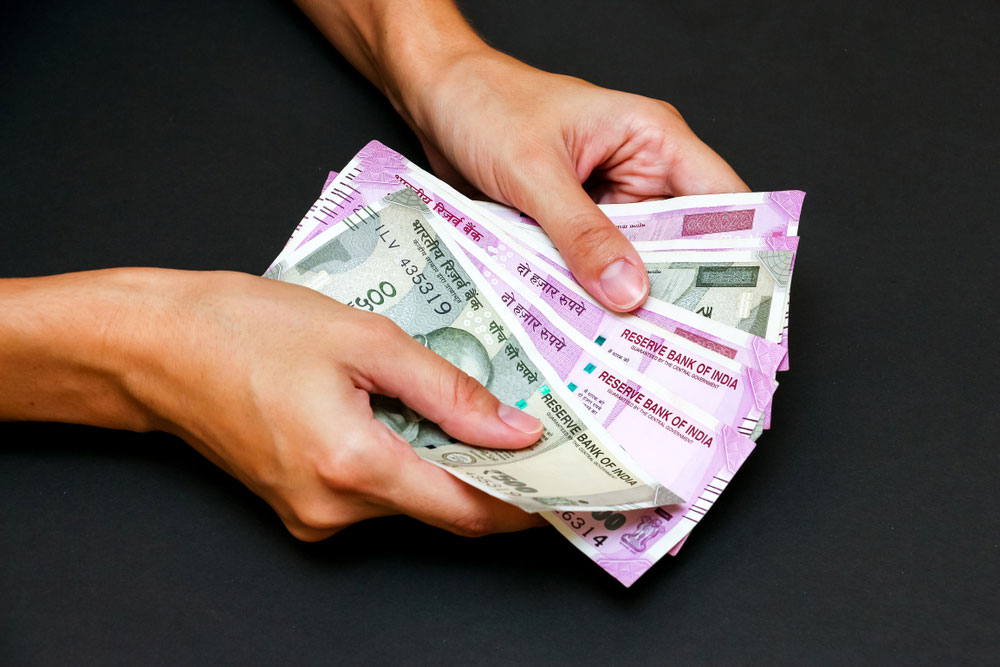The Supreme Court on Thursday said the government must strike a balance between employees and managements on the payment of wages during the lockdown period as it ordered the extension of its earlier interim order that said “no coercive action shall be taken” against employers for the non-payment of wages until the court resolves the issue on June 12 by a detailed judgment.
The court in the interim order on May 15 had said no coercive action should be taken against the managements. A hearing on the case was scheduled on Thursday.
A bench of Justices Ashok Bhushan, Sanjay Kishan Kaul and M.R. Shah passed the directions even as attorney-general K.K. Venugopal found it tough to defend the MHA (ministry of home affairs) and labour ministry circulars of March 29 warning the managements of private sectors of prosecution if they failed to pay wages to employees during the lockdown period. The circulars were issued by the Centre in a purported exercise of its powers under the Disaster Management Act, 2005.
The circulars have been challenged in a batch of petitions before the apex court by the managements of several companies on the grounds that it would result in a closure of companies as many of them have no production/manufacturing activities during the present crisis and moreover under the Disaster Management Act the Centre has no power to prosecute the management.
Venugopal, however, told the court that the purpose of the circular was essentially to prevent the exodus of crores of migrants to their home towns.
“People were migrating in crores, they wanted the industries to continue… the notification was to make the workers stay put... they would remain only if they are paid,” Venugopal said.
He said the purpose of the notification was “for preventing human suffering” while at the same time the government is of the view that both employers and employees must settle their disputes mutually if necessary through conciliation provided under the Industrial Disputes Act.
Justice Kaul told the attorney-general that the government has invoked the DMA and not the industrial disputes Act. Further, it has insisted on 100 per cent payment instead of asking them to pay 50 per cent of the wages.
“There can be negotiation industry wise ... may not be possible to give 100 per cent wages… the government can play a role of a facilitator in this...” the judge remarked.
“There is a concern that workmen should not be left without pay... but the concern should also be there an industry may not have money to pay. You have to strike a balance between the two sides…” Justice Ashok Bhushan, who is heading the bench, said. “… in any event they have to pay 50 per cent…” the attorney general said.
“Some negotiations have to happen between employers and workmen to iron out what to be done for the salary for these 54 days,” Justice Bhushan said.
Senior advocate K.V. Viswanathan appearing for some managements told the bench that the Centre’s circular should not be seen as a “ disaster” for managements and “bonanza ” for employees at a time when the managements are struggling to keep their companies running. Further, he said, the threat of prosecution cannot be carried out if there is to be any negotiation between the employers and the employees.
Jeetendra Gupta an advocate appearing for another company said the circulars warning prosecution had been passed by any authority which has no power to vested in it to do so.
However, the court asked the counsel whether the industry can run without the employees.
“You tell us, can you run an industry without labour. Therefore you have to strike a balance…should not be tilted either on side of the employer or the employee…” the bench observed.
However, the counsel said the company’s workload has reduced to just 10 per cent as such it was difficult to pay all employees as they included about 800 workmen outsourced through contractors.
The counsel suggested that the ESI which has Rs 80,000 to 90,000 crores as surplus fund can be utilized by the government for paying the distressed workmen.
He pointed out that Rs 30,000 cr was sufficient for the government to pay wages to the country’s entire workforce although the AG had referred to Rs 20 lakh cr being spent for workers during the present crisis.
Senior advocate Indira Jaising representing some workers defended the MHA order saying it was done to secure the workers’ interests.
She said the issue involved payment of wages to those who do not have basic amenities of life like food, water, shelter and clothing. Jaising argued that the principle of “no work no pay” cannot be applied to the present circumstances hence the arguments of the managements should be rejected.
The court then reserved its verdict which would be pronounced on June 12 as to whether the Centre’s circular are valid or not.











